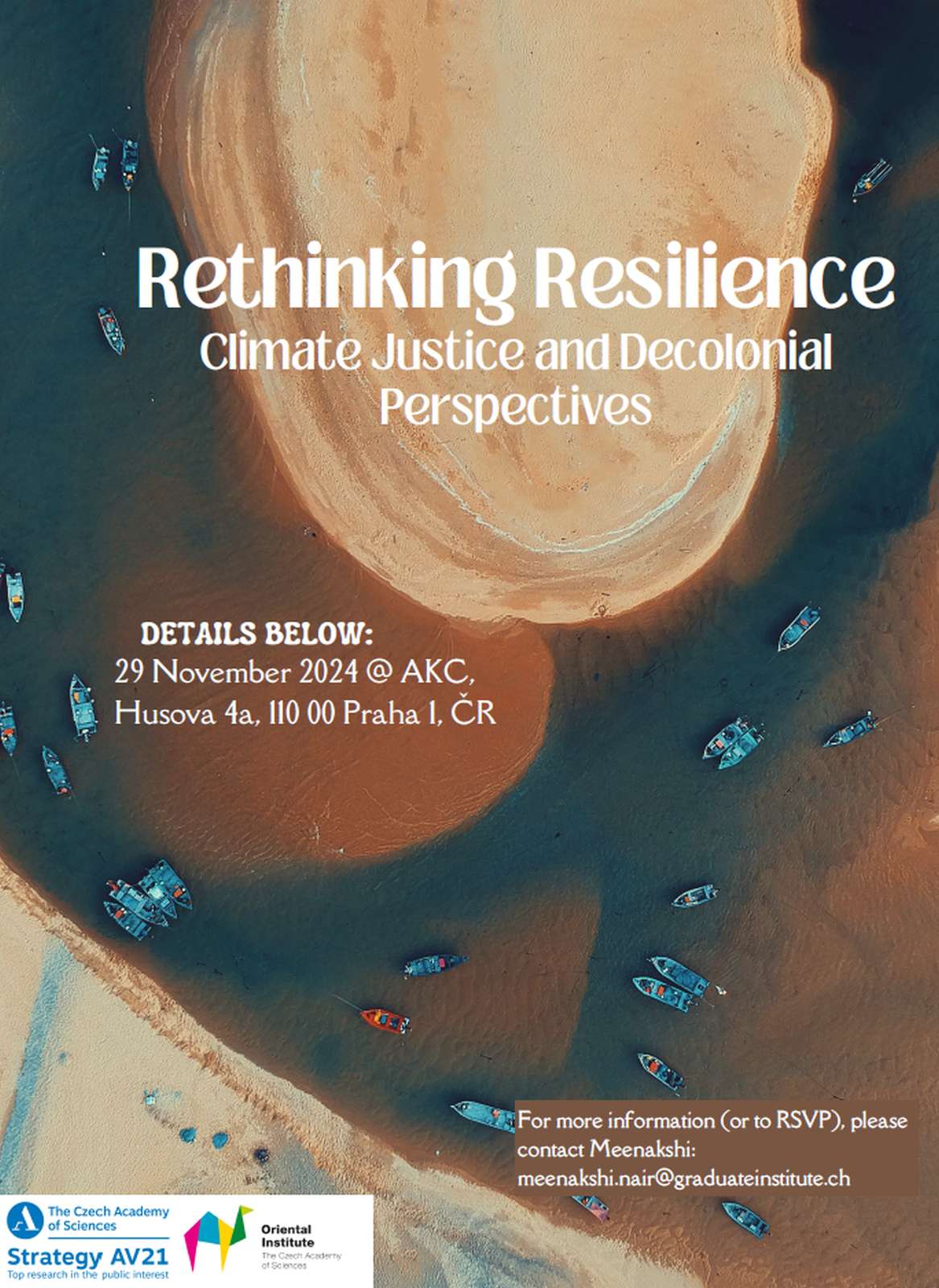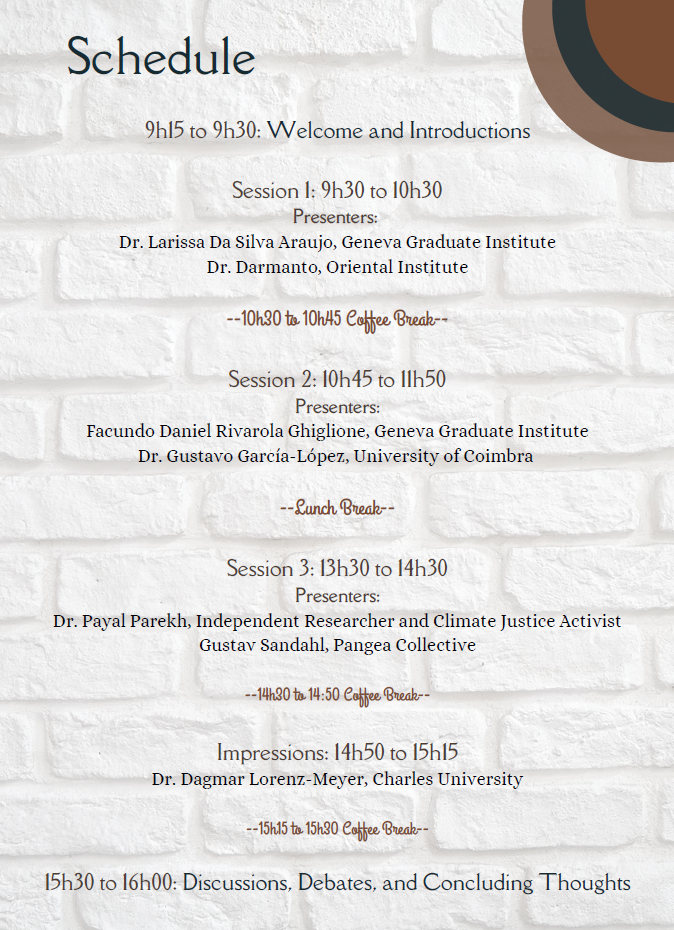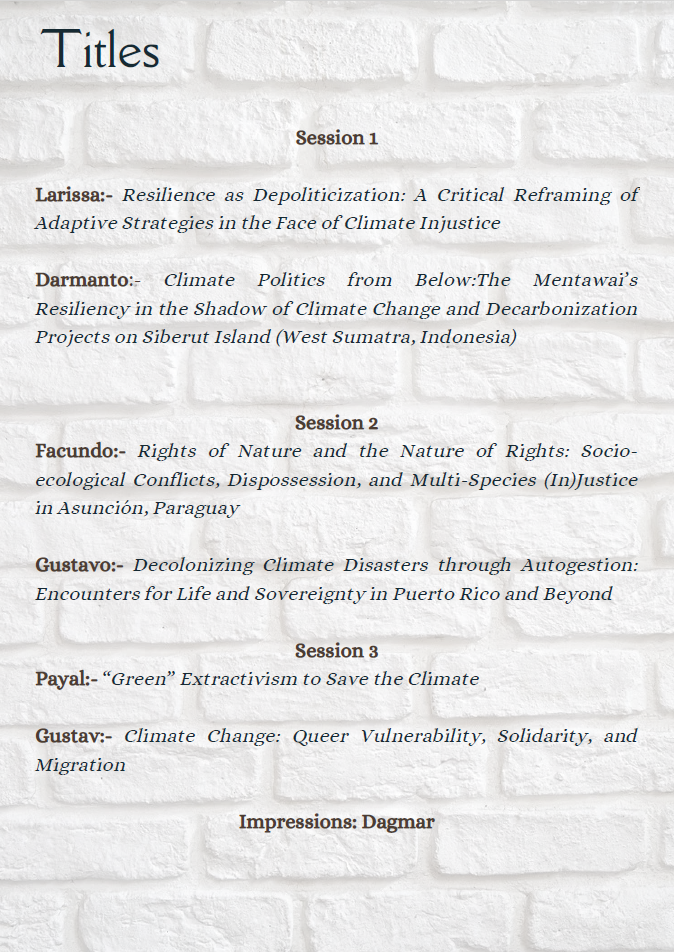
Rethinking Resilience: Climate Justice and Decolonial Perspectives
Fri Nov 29 09:00:00 CET 2024 - Fri Nov 29 17:00:00 CET 2024

Rethinking Resilience: Climate Justice and Decolonial Perspectives
How can a profound engagement with critical climate justice and climate coloniality help reformulate our conceptualisation of resilience? This question is significant, especially today. Farhana Sultana (2022) and Jocelyn Timperley (2021), among others, note that regions and people experiencing the worst implications of ecological crises contribute the least to causing them. In fact, historically contingent relations of power and socio-economic inequality, especially in the form of colonial legacies (Toledo Anonymous Collective et al., 2022), continue to marginalise these people and the geographies they inhabit, thus further aggravating their vulnerabilities. In other words, any form of engagement with climate justice needs to implicitly and explicitly recognise deep-rooted historical injustices that result in disproportionate consequences (de la Hoz et al., 2024). Acknowledging this permits us to view ecological and climate crises not as neutral events, but as those embedded in longer histories of inequality striated along the lines of race, gender, class, caste, and more.
Taking this as a point of entry, this workshop invites participants to reflect on the deeply fraught social relations that undergird resilience and crisis response. It allows us to not only complicate the concept of resilience but also ask what it means to be resilient in the face of climate crises, considering how unequal power relations and hierarchies could be potentially reproduced. A possible way to approach the question of resilience and the tensions that it encompasses could be to focus on care, agency, uncertainty, dispossession, indigenous knowledges, and/or more, thus teasing out what shapes and forms resilience could potentially take, and what it may overshadow. For instance, Nikita Sud’s research demonstrates how green policies often create ‘sacrificial zones’ within regions of the Global South, thus reinforcing longstanding relations of oppression. Consequently, these policies disenfranchise the most vulnerable people even further.
Inspired by the writings part of the edited volume, Feminist Technoecologies (2019), this workshop aims to curate a space where we reflect on the ‘unequally distributed precariousness and vulnerability of contemporary living conditions and invite imaginings of alternative approaches to the practice of care and to forging solidarity’ (Lorenz-Meyer, Treusch, and Liu, 2017: 353). With its decolonial focus and interdisciplinary approach, this activity explores how and why any meaningful response to climate change must acknowledge longer histories of power imbalances, extractivism and structural inequalities.



